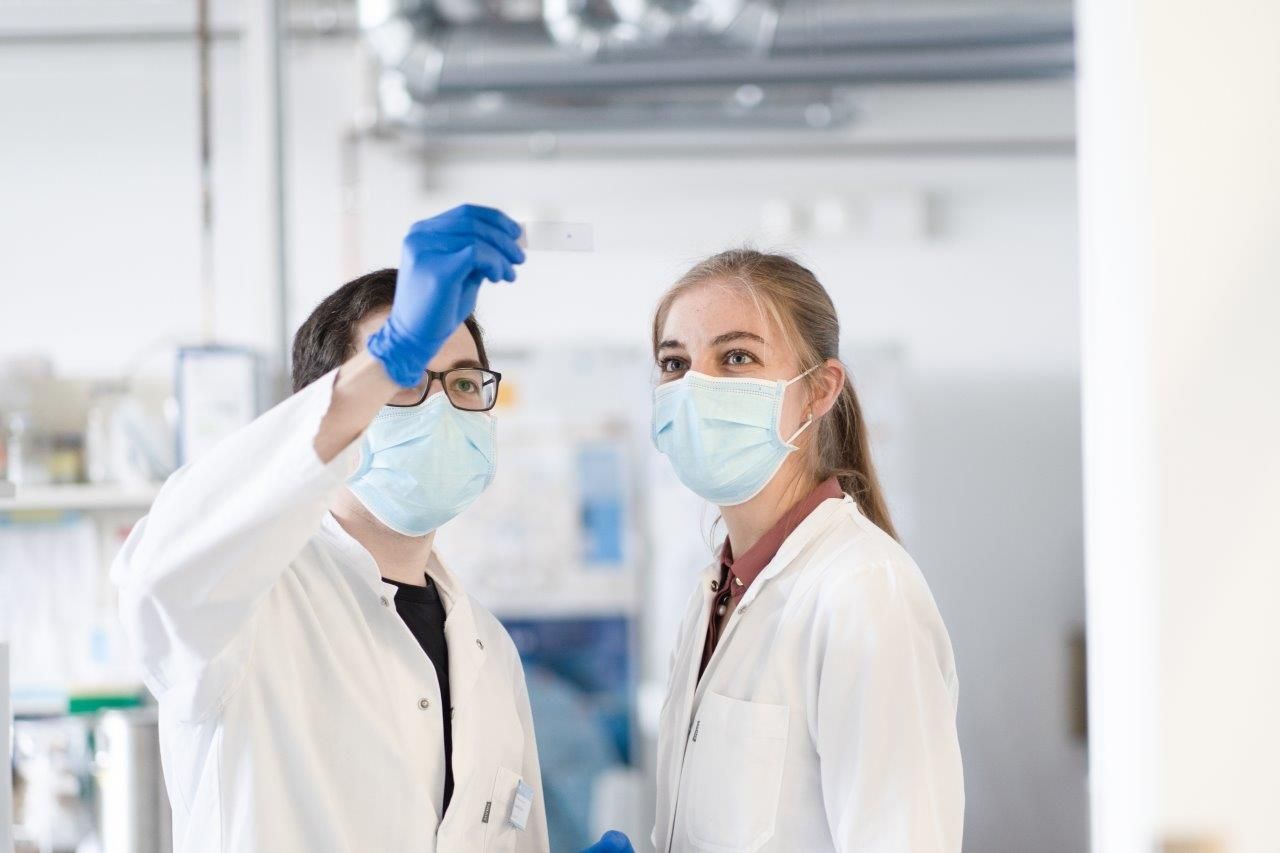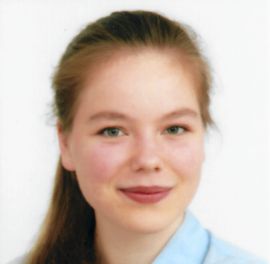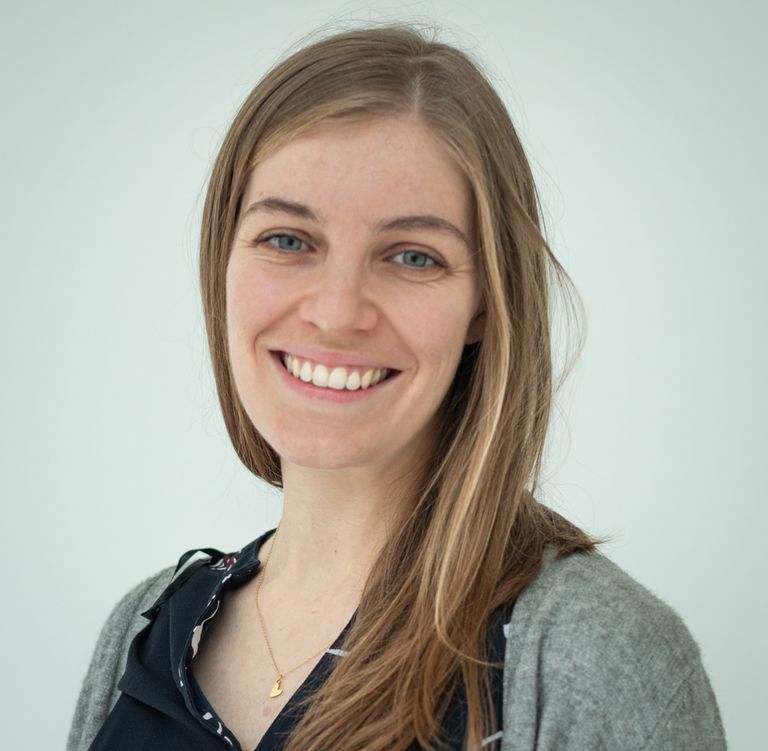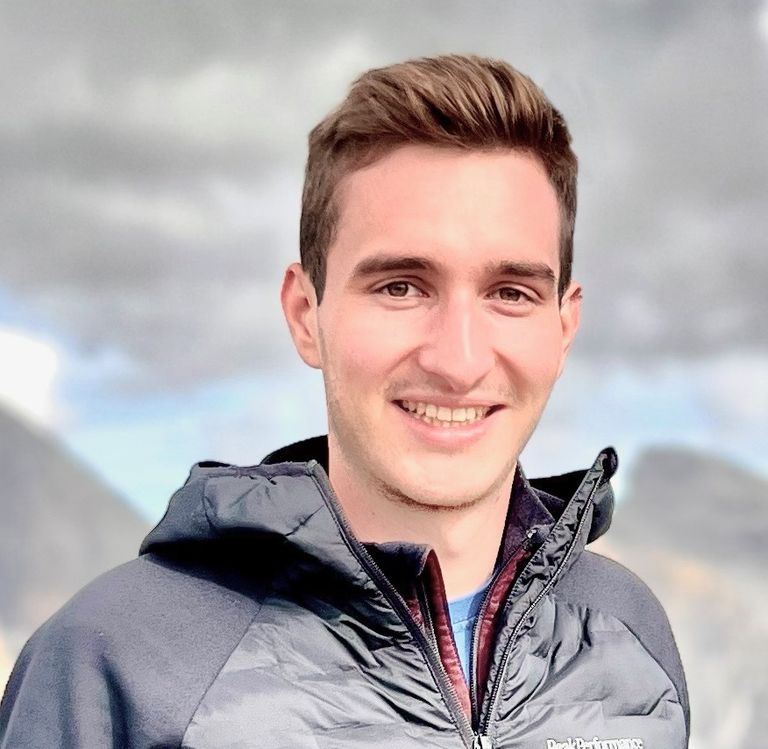Böttcher Lab
Mucosal-associated invariant T (MAIT) cells, innate like T cells enriched in tissues such as the liver, are known as crucial mediators of inflammation and possess anti-tumour effector function. Katrin Böttcher's research group is aiming at deciphering the role of MAIT cells for tumour development and how thier function is influenced by tissue-specific cues. We focus on understanding the metabolic regulation of MAIT cells and how their metabolism and effector function are affected by the local microenvironments. We believe that unravelling the role of MAIT cells for local anti-tumour responses will ultimately lead to novel, personalised therapeutic approaches against cancer.
Lab members
Dr. Katrin Böttcher, MD, PhD, PI
While studying Medicine at the University of Bonn, I became fascinated by the unique immune system in the liver. Following my medical degree, I set out to do a PhD at University College London, where I started working with MAIT cells, my favourite immune cells. Having discovered that they are contributing to liver inflammation and fibrosis development, I now want to understand their role for local immune regulation in the liver better. My group is therefore working on the metabolic regulation of MAIT cells and how they are shaped by the hepatic microenvironment.
Guilty pleasure – Listening to cheesy playlists while cooking
Sebastian Deschler, PhD student
I obtained my Master’s degree in Biochemistry from Ludwig Maximilian University of Munich. For my PhD, I am now investigating the role of MAIT cells in non-alcoholic fatty liver disease (NAFLD) and want to understand how the metabolic environment in NAFLD shapes MAIT cell biology and function.
After work I enjoy drinking a beer with my colleagues while playing traditional Bavarian card games or playing table tennis duels at the nearby park.
Sophia Erlacher, MD student
During my studies in Medicine at the Ludwig-Maximilians-University Munich, I developed a fascination for the immune system of the human body, especially in the context of fighting acute or chronic hepatitis B virus infection. Understanding the mode of action of the immune system and the role of individual immune cell populations, such as MAIT cells, harbours the potential to discover new therapeutic strategies. Therefore, I want to decipher MAIT cell function and their role for chronic HBV infection.
In my spare time, I like to play basketball, go to art museums and to philosophise with friends.
Junika Pohl-Topcu, PhD student
Throughout my studies of Molecular Life Sciences in Lübeck and the Netherlands, I was always interested in the miracles of the immune system and how it protects us on a daily basis. In 2019, I came to Munich for an industry internship on vaccine development. As life goes, I stayed in this beautiful city and started a PhD project investigating the role of MAIT cells in hepatocellular carcinoma.
In my spare time, I make an effort to learn Turkish.
Joseph Zink, MD student
During my medical studies at the Technical University of Munich, I discovered my interest in the complex field of immunology. I am currently investigating the influence of MAIT cells on hepatitis B virus infection, in particular the effect of antiviral treatment on the MAIT cell function.
Outside of work, I enjoy spending my time in the nearby mountains or with friends at the Bavarian lakes.
Former Lab Members
Dr. med. univ. Juliane Kager, Clinical Research Fellow
Dr. rer. nat. Enric Redondo Monte, PostDoc
Julius Weber, FJN
Funding
Current Funding
Deutsche Forschungsgemeinschaft TRR179
Deutsche Krebshilfe
Wilhelm Sander Stiftung
Completed Funding
Deutsche Forschungsgemeinschaft Einzelförderung
Else Kröner-Fresenius Stiftung
Kommission für Klinische Forschung
Bayerisches Staatsministerium für Bildung und Forschung
European Association for the Study of the Liver (EASL)
Contact
Tel.: +49 89 4140 9328
E-mail: katrin.boettcher@mri.tum.de














